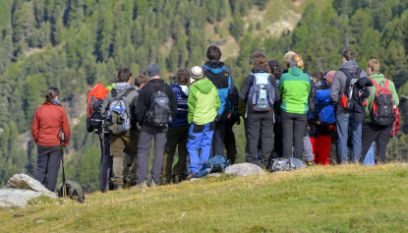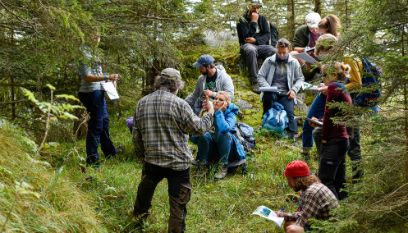Structure + Content
The regional management of mountain areas requires specialists who are familiar with these features and trends and can adopt an interdisciplinary and cross-sectoral approach to their work, focusing on practicality and goals. The MSc in Life Sciences with the Regional Management in Mountain Areas (Alpine master’s) major equips you for precisely this task.
What you gain with this programme
-
The Alpine master’s programme will equip you with sound professional knowledge of regional management in mountain areas – you will become an expert in your field.
-
You will develop the ability to delve quickly and independently into unfamiliar areas, then implement your new knowledge in practice.
-
You will master a broad spectrum of methodological and leadership skills and learn to manage complex projects competently.
-
You will become adept at making scientific contributions in multidisciplinary teams.
During this major, you will combine your knowledge of ecological and socio-economic issues with the management of regional development in mountain areas. You will therefore be studying how nature, land use, society and politics interact. In particular, you will examine:
- the agricultural use of the Alpine region
- specific natural hazards and risk management
- current methods for geospatial analysis, such as GIS
- changing living conditions in the Alpine region
- project management
- regional planning
- nature reserves
- tourism
- leadership and human resources management
- public relations and conflict management
The content relates specifically to mountain areas and is illustrated by examples from the Alps.









